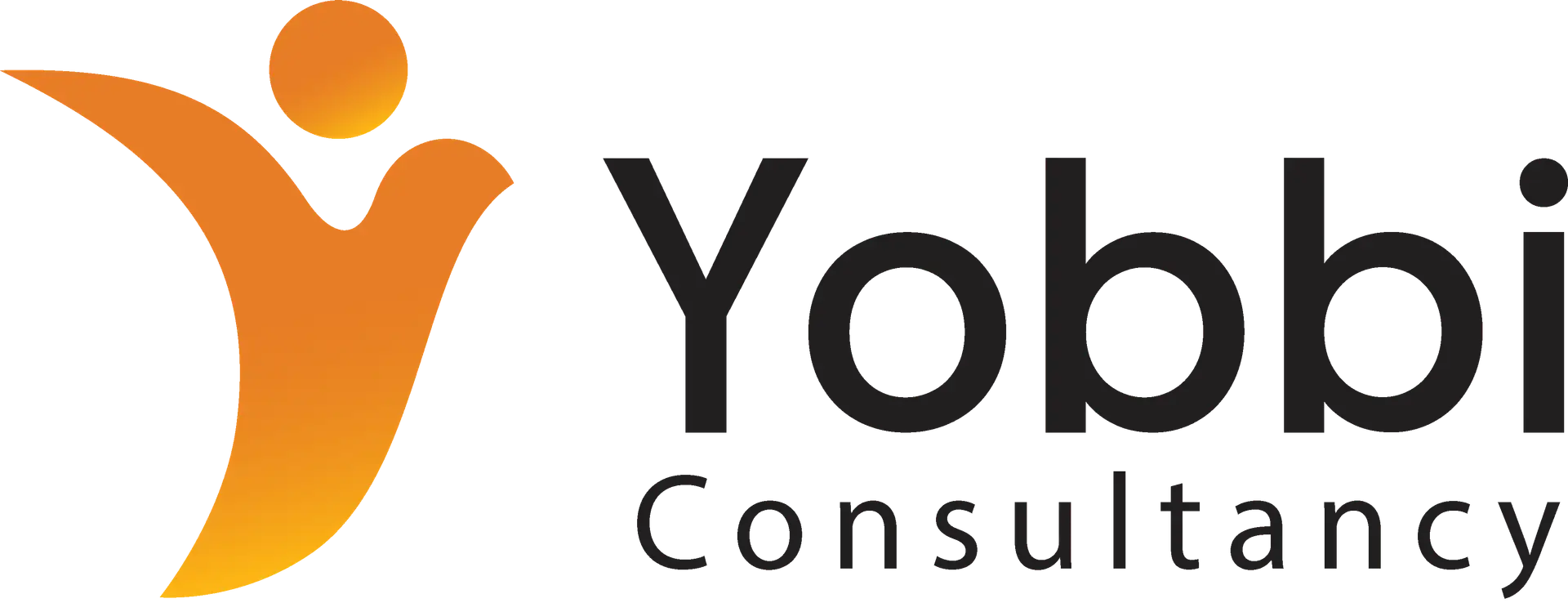Singapore Accounting And Tax
Why Choose Singapore for Your Business?
Singapore’s business-friendly tax environment offers a host of benefits, making it one of the best places to set up and operate your business. Here’s why:
Simplified Taxation
Singapore’s tax system is transparent and easy to navigate, ensuring a smooth experience for businesses without the complexity of burdensome tax regulations.
Favorable Policies and Low Tax Rates
With supportive policies and favorable tax rates, Singapore offers significant financial advantages for businesses.
World-Class System
Singapore's tax framework is internationally recognized for its efficiency and effectiveness, offering businesses a reliable and stable environment for growth.
Get Started with Yobbi, in 3 Easy Steps!
-

Book a free consultation
Start by scheduling a free consultation with us. In this session, we’ll discuss your business needs and goals, giving us the opportunity to understand your unique financial situation and provide customized advice.
-

Meet our accounting and tax experts
Connect with our team of accounting and tax experts. We’ll guide you through the complexities of Singapore’s accounting regulations and tax obligations, offering clear solutions and strategies to ensure your business stays compliant and optimized for success.
-

We will take care of the rest
Once you’ve partnered with us, we’ll handle all the necessary accounting, tax filing, and financial management tasks. From setting up your business structure to filing taxes on time, we ensure everything runs smoothly so you can focus on growing your business with peace of mind.
What You Need to Know About Taxes and Accounting
Before you incorporate your company in Singapore, it’s essential to understand key requirements and steps to ensure a smooth and successful setup.
According to Singapore’s latest accounting standards
When a Singaporean company is formed, the company must follow the rules of the Singapore Companies Act. Compliance involves annual filings with ACRA and IRAS. As per Singapore law, original accounting and tax certificates must be kept for at least 5 years, organized chronologically or by contract occurrence.
- Bank statements, Contracts, Invoices
- Receipt, Payment Voucher
- Logistics Documents, Shipping Waybills, Bills of Lading, etc
- Letter of Credit, Credit Card Receipt
- Payroll Calculation Summary
- CPF Contribution Receipt, CPF Calculation Statement
- Year-end Bonus Calculation Sheet
- Details of Changes in Shareholders’ Equity, such as: Capital Increase, Transfer, Additinal Issuance, etc
- Certificate of Shareholders’ Paid-up Capital Payment
- Others if applicable (If a company fails to submit its annual financial report on time, ACRA in Singapore may impose fines on the company. In severe cases, legal actions may be taken against the company.)
- Revenue Recognition (SFRS 15): Singapore has aligned with international standards on recognizing revenue, particularly from contracts with customers.
- Leases (SFRS 16): The new SFRS 16 requires companies to recognize lease liabilities and corresponding assets on the balance sheet, affecting the way lease transactions are reported.
- Financial Instruments (SFRS 109): Companies must now measure and report financial assets and liabilities at fair value under the SFRS 109 standard.
- Company Registration & Financial Consulting
- General Ledger Maintenance
- Tax Filing & Optimization
- Bank Reconciliation
- Accounts Payable (AP) & Accounts Receivable (AR) Management
- Fixed Assets Ledger Maintenance
- Financial Statements and Reports
- Payroll Management & Compliance Services
- Management Reporting (Differences in industries and company characteristics will impact the content and format of financial statements.)
- Yobbi will help you set up and maintain accurate accounting records, ensuring compliance with Singapore's financial reporting standards.
The corporate income tax in Singapore is based on a company’s profits, with a rate of 17%
In Singapore, corporate income tax is applied to a company’s profits at a flat rate of 17%. While businesses strive for compliance, occasional errors can occur, leading to penalties or further scrutiny from tax authorities. Understanding the available tax incentives and seeking expert advice can help your business remain compliant and take advantage of reliefs that support growth and sustainability.
- Companies may make occasional tax errors due to lack of diligence, leading to penalties or subpoenas.
- Consulting tax professionals helps avoid these issues and ensures compliance.
- The Inland Revenue Authority of Singapore (IRAS) offers a 50% corporate income tax rebate for all tax-paying companies.
- To qualify, companies must employ at least one Singapore citizen or permanent resident with CPF contributions (excluding shareholder-directors).
- Eligible companies will receive a minimum SGD 2,000 rebate.
Tax exemption schemes for new companies
Any eligible newly registered company (as described below) is entitled to enjoy tax exemption in the first three years, as determined by tax authorities.
Eligibility Requirements:
- Incorporated in Singapore
- Tax resident in Singapore
- The company should have fewer than 20 shareholders, with at least one individual shareholder holding a minimum of 10% of ordinary shares.
Start-up Tax Exemption (SUTE)
Under the Start-Up Tax Exemption (SUTE) scheme, newly incorporated companies enjoy tax exemptions for their first three years of assessment:
- 75% exemption on the first SGD 100,000 of normal chargeable income
- 50% exemption on the next SGD 100,000 of normal chargeable income
This scheme is not applicable to investment holding companies and companies engaged in property development for sale, investment, or both.
Partial Tax Exemption:
Companies that do not qualify for SUTE (e.g., older companies or excluded businesses) may still benefit from the Partial Tax Exemption (PTE) scheme:
- 75% exemption on the first SGD 10,000 of normal chargeable income
- 50% exemption on the next SGD 190,000 of normal chargeable income
These exemptions significantly reduce a company’s tax burden and encourage business growth.
Regarding the compliance of corporate income tax filing obligations for companies:
- The deadline for filing tax returns is November 30 each year
- Mandatory for all companies to file electronically
- The deadline for filing Estimated Chargeable Income (ECI) is within 3 months of the end of the company’s financial year
- If your company meets certain criteria, it’s not required to submit ECI. Avoid common mistakes such as false claims for non-deductible expenses
- If the annual revenue does not exceed 5 million SGD and there is no taxable income, ECI filing may be waived.
- Submit an estimated chargeable income
- Calculations of tax, including income statements and income tax returns
- Liaise with the Income Tax Department regarding tax assessments, objections, and correspondence
- Yobbi will guide you through the corporate income tax process, ensuring timely filings and helping you take advantage of available tax incentives.
Corporates can appropriately estimate and manage estimated tax payments based on business and revenue situation
The Estimated Chargeable Income (ECI) is the company’s estimated taxable income as assessed by the Inland Revenue Authority of Singapore (IRAS). Since January 2017, all companies must file their ECI electronically via the MyTax Portal.
Income includes the company’s main revenue sources but excludes gains from selling fixed assets. For investment holding companies, this primarily consists of earnings from investments, such as interest and dividends.
- If there are no audited financial statements, you can refer to the company’s management accounts to report the amount of revenue.
- If the amount of income reported according to the audited financial statements is different from the amount of income reported on the ECI form and there is no change in your ECI, you do not need to modify the income figure.
- Yobbi will help you estimate your corporate tax obligations and ensure timely payments to avoid penalties and interest charges.
Singapore’s corporate consumption tax is known as the Goods and Services Tax (GST)
Goods and Services Tax is a broad-based tax levied on goods imported into Singapore (collected by Singapore Customs) and on almost all goods and services in Singapore. In other countries, consumption tax is called Value Added Tax (VAT).
- The current GST in Singapore is 9%.
Register for GST
All companies with an annual taxable income exceeding S$1 million or anticipated to exceed S$1 million must register for the Goods and Services Tax (GST). These companies are required to register for GST within 30 days of reaching this threshold.
- You also have the option to voluntarily register for GST. Approval for voluntary registration will be at the discretion of the Comptroller of GST in Singapore. Once approved, you’ll need to maintain the registration for a minimum of two years.
- You must file your GST return with IRAS within one month of the end of each prescribed accounting period, usually quarterly.
- You should reimburse your output and input tax on your GST return.
- The difference between output tax and input tax is net GST payable to or refunded by IRAS.
- Business records for 5 years, or records of all GST-related transactions, need to be kept. Records include tax invoices, receipts, and credit documents.
GST Billing and Charges
- GST registration or cancellation.
- Prepare GST calculation forms and file GST returns. (If a business does not submit GST on time by the prescribed deadline, the penalty for late payment is S$200. Subsequent monthly GST filings will result in an additional penalty of S$200 per month, up to a maximum of S$10,000.)
- Yobbi will assist you with GST registration, filing, and optimization, ensuring your business stays compliant with Singapore’s GST regulations.
Personal Income Tax
Everyone is responsible for paying personal income tax. Personal income tax in Singapore is calculated based on an individual’s income level and the corresponding tax rate. Considering the potential tax savings, government incentives, and complex tax implications, it would be wise to consult with a tax expert. This helps you declare your income more efficiently and maximize the tax savings you are entitled to.
Tax Resident or Non-Tax Resident
Tax residents and non-tax residents are subject to different personal income tax rates in any given tax year (fiscal year or assessment year). You would be considered a tax resident if you meet the following conditions:
- Singapore Citizen
- Singapore Permanent Resident (SPR) if you have applied for permanent residency in Singapore.
- Or if you have resided in Singapore for at least 183 days in the preceding tax year, excluding company directors.
According to Singapore’s tax standards, if you do not meet any of these criteria, you will be considered a non-tax resident.
Tax Resident or Non-Tax Resident
- Employment Income: You are required to pay personal income tax on your employment income at a rate of 15% or the resident personal income tax rate, whichever is higher.
- Other Income: Consultancy fees, advisory service fees, and other income. You are required to pay personal income tax to the IRAS at a rate of 20% on the director’s fees and consultancy service fees you receive.
- Company Incorporation Documents: Includes the Certificate of Incorporation, Company Constitution, and the Business Profile provided by ACRA after incorporation.
- Directors’ Identification Documents: Passport copy or NRIC (for Singapore residents) for all company directors.
- Proof of Address for Directors: Utility bills or bank statements showing the residential addresses of the directors.
- Business Plan: Some banks may request a summary of your business model or a formal business plan when opening a corporate account.
- Bank’s KYC Forms: Know Your Customer (KYC) forms that the bank will require for opening the account.
- GST Registration (if applicable): If your business’s annual revenue exceeds SGD 1 million, you must register for Goods and Services Tax (GST) with the Inland Revenue Authority of Singapore (IRAS).
- Additional Licenses: Any permits or licenses necessary to operate in your industry (e.g., food handling license, educational institution license, etc.).
- Yobbi will support you in understanding and filing your personal income tax returns, ensuring compliance with Singapore's progressive tax system.
Why Choose Yobbi for Accounting & Tax Services in Singapore?
At Yobbi Consultancy, we provide expert accounting and tax services tailored to your business needs, offering you key advantages that help you focus on your core business while we handle the rest.
Time-Saving
Our efficient process frees up your time, allowing you to focus on what matters most—growing your business.
Cost-Effective
We streamline accounting and tax procedures, helping you reduce operational expenses and improve your bottom line.
Ensuring Compliance
Stay fully compliant with Singapore’s tax regulations. We ensure your business meets all legal requirements, so you can operate with peace of mind.
Comprehensive Support
From accounting to strategic guidance, we provide end-to-end support, ensuring smooth operations and business success.
Corporate Tax Calculator for New Startups
New start-up companies (Registered within 3 years) benefit from the Start-Up Tax Exemption (SUTE) scheme.
| 4.25% on above $100,000 | S$0.00 |
| 8.5% on next $100,000 | S$0.00 |
| 17% on the balance above $200,000 | S$0.00 |
| Gross Tax Payable | S$0.00 |
| Net Tax Payable | S$0.00 |
| Effective Tax Rate | 0.00% |
- Disclaimer: Above tax computation is subject to certain conditions and the information in this summary is intended to be no more than a general overview of your tax position. If you need professional advice or assistance, please call us at +65 89135566.
Corporate Tax Calculator for Partial Tax Exemption
Other companies (Registered for more than 3 years) can benefit from the Partial Tax Exemption (PTE) scheme.
| 4.25% on first $10,000 | S$0.00 |
| 8.5% on next $190,000 | S$0.00 |
| 17% on balance above $200,000 | S$0.00 |
| Gross Tax Payable | S$0.00 |
| Net Tax Payable | S$0.00 |
| Effective Tax Rate | 0.00% |
- Disclaimer: Above tax computation is subject to certain conditions and the information in this summary is intended to be no more than a general overview of your tax position. If you need professional advice or assistance, please call us at +65 89135566.
Frequently Asked Questions
What is corporate tax, and who needs to pay it?
Corporate tax is a tax levied on the profits of companies. In Singapore, all registered businesses, including foreign companies operating in the country, are required to pay corporate tax on their taxable income earned within Singapore.
What is the Start-Up Tax Exemption (SUTE) Scheme?
The SUTE scheme provides newly incorporated companies with tax exemptions on the first SGD 200,000 of chargeable income for the first three years.
How does the Partial Tax Exemption (PTE) Scheme work?
The PTE scheme provides all other companies with tax exemptions on a portion of their chargeable income, reducing their overall tax burden.
What is the difference between chargeable income and taxable income?
Chargeable income refers to a company’s net profit after deducting allowable expenses, while taxable income is the final amount subject to corporate tax after exemptions and reliefs.
When is the corporate tax filing deadline in Singapore?
The deadline for e-filing the Corporate Income Tax Return (Form C-S/C) is usually 30 November of the following year.
What happens if a company fails to file its corporate tax return on time?
Late filing may result in penalties, fines, or even prosecution. The tax authority may issue estimated tax assessments if the return is not submitted.
